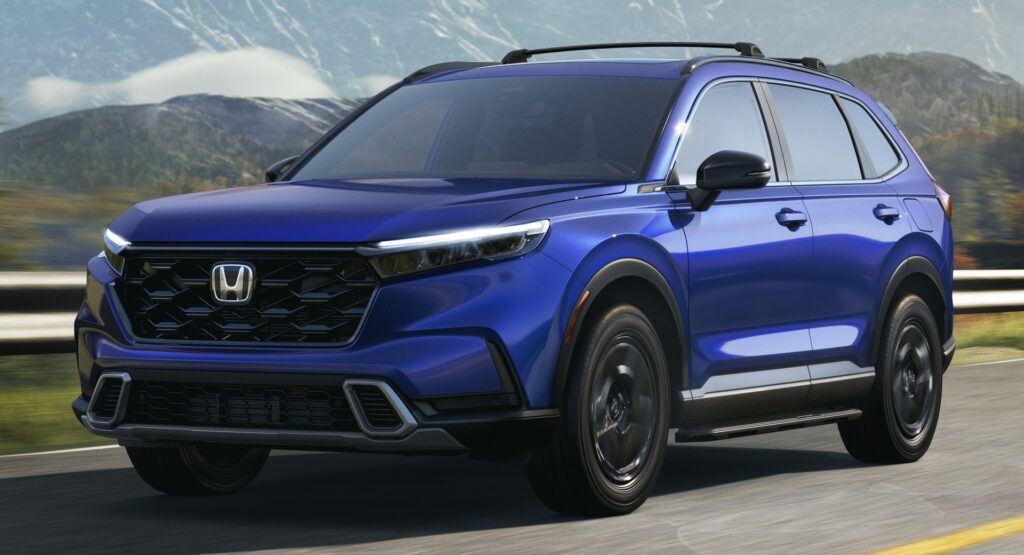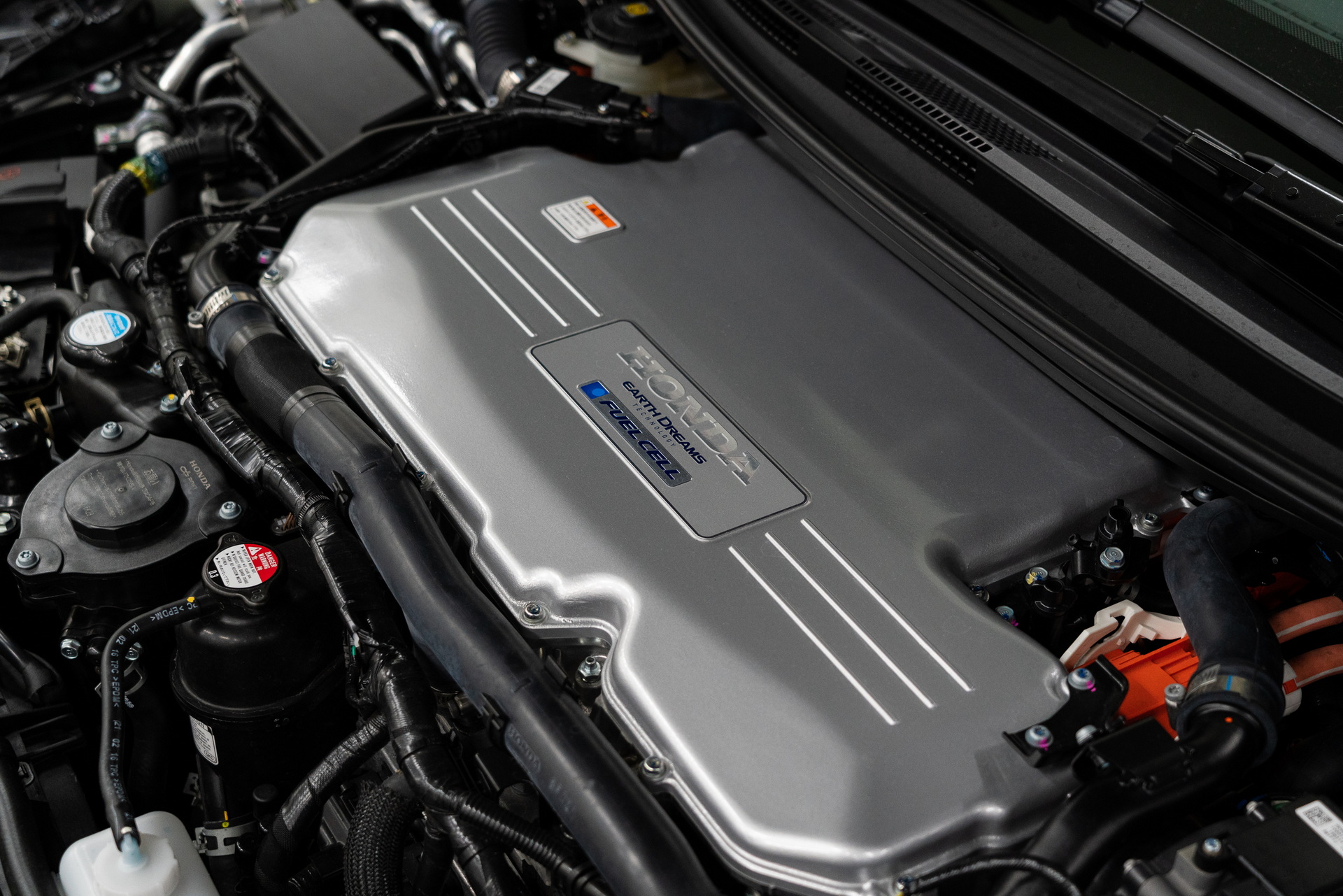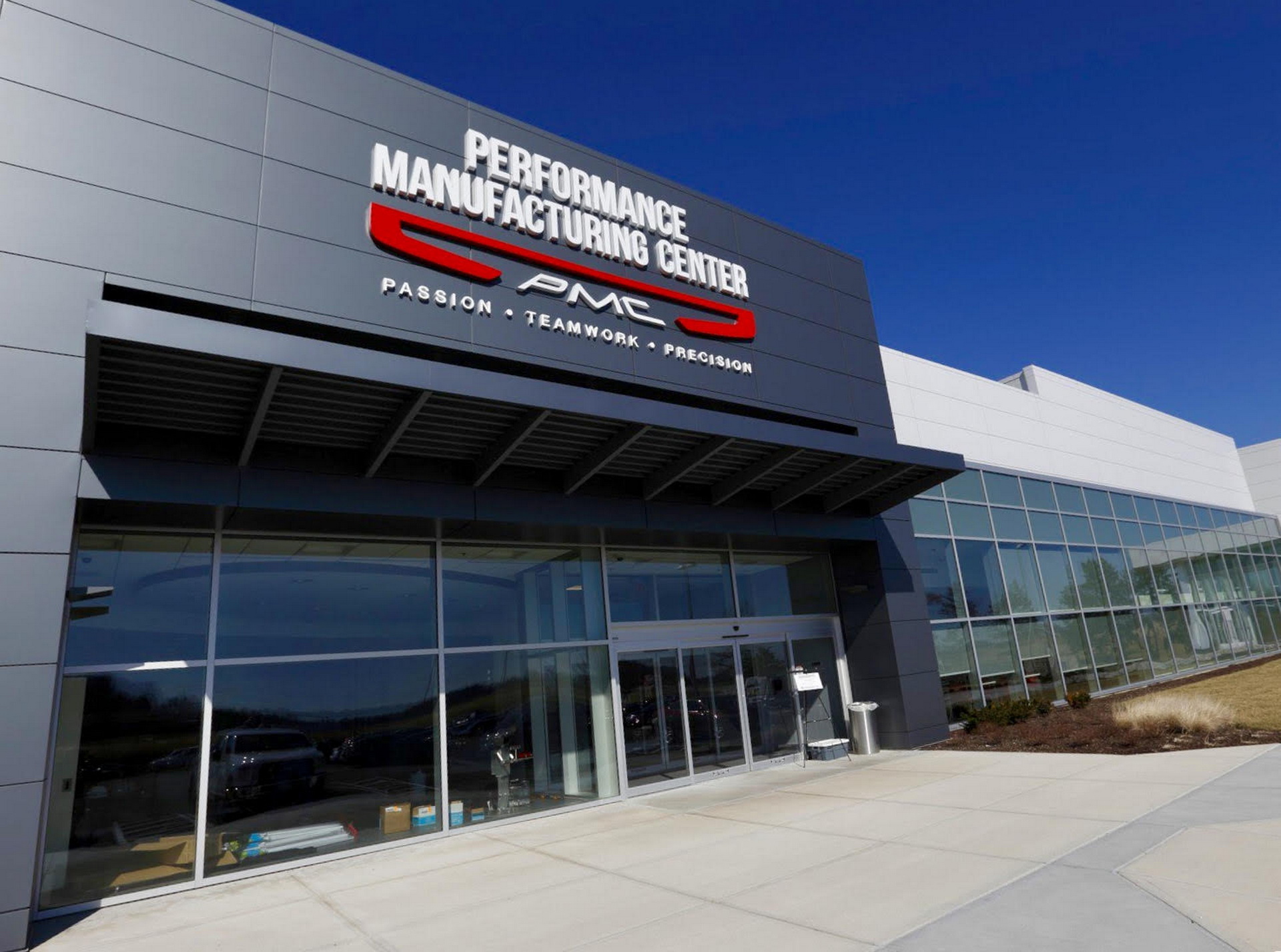Honda announced today that it will build a new fuel-cell electric vehicle (FCEV) based on the new CR-V at its Performance Manufacturing Center (PMC) in Marysville, Ohio. The plug-in hydrogen vehicle will go into production starting in 2024.
The vehicle will be based on the CR-V at least in part because it has been Honda’s best-selling crossover for the last 25 years. It will be able to be filled up at both hydrogen fueling stations and charging stations for electric vehicles.
Driven by electric motors, owners will have the choice of charging their batteries straight from the electrical grid, or making their own electricity on-board with hydrogen. That, Honda says, will give owners the freedom of choice to charge like an EV for their daily commute or refuel quickly at a hydrogen station if, say, they’re on a road trip. Unfortunately, few other details, such as battery size, range, or power, have been revealed.
Read: Honda Going To Sell Only Electric And Fuel-Cell Vehicles Globally By 2040
Honda did say, though, that the vehicle will be built at its Performance Manufacturing Center in Ohio, and that the new hydrogen vehicle will be produced in smaller numbers than, say, the standard CR-V.
“Honda established our goal to realize carbon neutrality by 2050 and the complete electrification of our vehicle lineup by 2040 is critical to achieving it,” said Gary Robinson, vice president of Auto Planning & Strategy for American Honda Motor Co., Inc. “As we accelerate our plan to produce Honda battery EVs in the United States, we also will begin low volume production of fuel cell electric vehicles there to further explore their great potential as part of a sustainable transportation future.”
Historically, the PMC has been responsible for producing highly technical vehicles on a small scale. It was, for instance, where the Acura NSX was made until earlier this month, and is also behind the PMC Edition versions of the TLX, the RDX, and the MDX. It is also where Honda builds a number of its factory race cars.
“Our associates at the Performance Manufacturing Center have really enjoyed the opportunity to successfully introduce several specialty vehicles into the market,” said PMC plant leader Gail May. “This facility is perfect for production of a new Honda fuel cell electric vehicle, as our small-volume capability enables us to really leverage the skill and expertise of our team to produce quality zero-emission vehicles here in North America.”
When it introduced the 2023 CR-V, Honda said that it would play a big role in its electrification strategy. It anticipates that the hybrid version of the CR-V will represent 50 percent of the model’s sales.
More details on this CR-V-based fuel cell electric vehicle, meanwhile, will be released closer to its introduction, in 2024.










